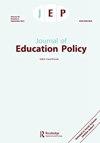通过“完全教育化的社会”重塑教育治理及其危机
IF 2.8
2区 教育学
Q1 EDUCATION & EDUCATIONAL RESEARCH
引用次数: 2
摘要
摘要本文通过对Basil Bernstein的“完全教育化社会”(TPS)概念的探讨,为教育治理及其危机的批判性政策研究做出了贡献。TPS不仅见证了跨国私人行为者的成长,也见证了全球和国家改革议程在知识治理和主体性方面的脱节。这一论点通过一个围绕香港历史考试题无效的法庭案件得到了说明,该案件发生在2019年社会动荡之后。这场危机的核心是教育话语的错位。历史考试可以被认为是将产生“批判性思维”和“知识经济”科目的全球政策想象重新文本化的间接结果,但它与中国的调节话语不相适应,即通过教育手段来治理其后殖民科目的政治意识并使其统治合法化。TPS的概念考虑了亚洲高绩效政权的另一面:改革危机、强势国家的回归、教育系统内外不断演变的权力和控制关系,以及教育代理人/机构之间日益紧张的关系,正如今天香港所揭示的那样。本文章由计算机程序翻译,如有差异,请以英文原文为准。
Reframing educational governance and its crisis through the ‘totally pedagogised society’
ABSTRACT This article contributes to the critical policy studies of educational governance and its crisis, through canvassing Basil Bernstein’s concept of the ‘totally pedagogised society’ (TPS). The TPS witnesses not only the growth of transnational private actors, but also the disjuncture between global and national agendas of reform, on the governance of knowledge and subjectivity. This argument is illustrated through a court case surrounding the invalidation of a history exam question in Hong Kong, which occurred after the 2019 social unrest. At the heart of this crisis is a dislocation of pedagogic discourse. The history exam can be considered as an indirect outcome of recontextualising the global policy imaginary of producing subjects of ‘critical thinking’ and ‘knowledge economy’, but it is incommensurate with China’s regulative discourse, that is, to govern the political consciousness of its postcolonial subjects and legitimise its rule through pedagogic means. The concept of TPS considers the other side of a high-performing regime in Asia: the crisis of reform, the return of a strong state, the evolving power and control relations inside/outside the education system, and the rising tensions between pedagogic agents/agencies, in a period of rapid social change as revealed in Hong Kong today.
求助全文
通过发布文献求助,成功后即可免费获取论文全文。
去求助
来源期刊

Journal of Education Policy
EDUCATION & EDUCATIONAL RESEARCH-
CiteScore
8.10
自引率
8.00%
发文量
25
期刊介绍:
The Journal of Education Policy publishes original, critically and theoretically informed research that discusses, analyses and debates policymaking, policy implementation and the impact of policy at all levels and in all facets of formal and informal education. The journal is interested in analysis and theorisation of policy that is transposable, that has generic interest and relevance - national policy case studies would need to be conceptually and/or methodologically generalisable. The journal also publishes work that presents new methods of research and research studies that are experimental and innovative. The journal offers a forum for theoretical debate, as well as historical, philosophical and comparative studies, across different countries, contexts and levels of education. A valuable resource for academics, researchers, educators and policy makers, Journal of Education Policy provides rigorous and original insights into educational policy development, implications and global impact.
 求助内容:
求助内容: 应助结果提醒方式:
应助结果提醒方式:


